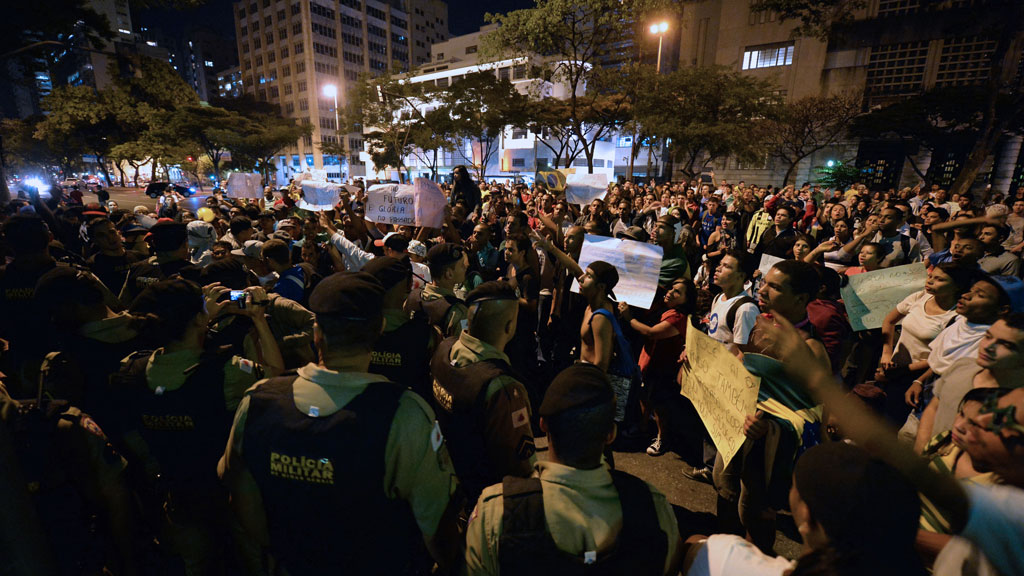Brazil’s President Rousseff pledges reforms
Brazil’s President Dilma Rousseff pledges urgent reforms for the country, following widespread violence and vandalism that have marred the country’s largest protest in 20 years.
- Chapters
- descriptions off, selected
- subtitles off, selected
- captions settings, opens captions settings dialog
- captions off, selected
This is a modal window.
This is a modal window. This modal can be closed by pressing the Escape key or activating the close button.
In a televised address, Rousseff reiterated her government’s support for social change and said she had an obligation to listen to the voices on the street and conduct a dialogue with all sides.
She said she would create a new plan for public transport – whose steep price rises sparked the original unrest – and that royalties from the sale of Brazil’s oil would be used in education.
She added that Brazil would draft in thousands of doctors from overseas to improve the country’s national health service.
A backlash against nationwide protests took hold on Friday after widespread rioting, as even the leftist group at the movement’s core said it would stop organising marches for now because of growing discord and violence.
This was the day after 1 million people in more than 100 cities took to the streets.

‘No new demonstrations’
The Free Fare Movement in Sao Paulo, an activist group that was instrumental in the rise of the protests, said it would stop organising new demonstrations for now after street fights broke out among protesters with different objectives on Thursday.
Douglas Belome, a bank teller and member of the Free Fare group, said things turned ugly when some protesters sought to prevent left-wing political parties from waving their flags.
“At least for now, there are no new demonstrations scheduled,” he told Reuters, expressing regret for the violence.
Sporadic protests flared again on Friday, with vandalism occurring in poorer districts of Rio de Janeiro.
Chased looters from the next Olympic city
Police on Thursday chased looters from the city that will host the 2016 Olympic Games.
The streets of Sao Paulo, Brazil’s business centre, were the quietest they have been all week, though some marched in favour of gay rights.
Additional demonstrations were likely prior to a Brazil versus Italy football game on Saturday, part of a warm-up event for next year’s World Cup, while groups were exchanging proposals on Facebook and elsewhere to schedule possible protests early next week.
The unrest blossomed over the past week as Brazilians, frustrated by a range of problems from corruption to poor public transport, responded to calls on social media and took part in the country’s biggest demonstrations in 20 years.
Unlike other recent protest movements such as the Arab Spring, Brazil’s protesters are not targeting any individual politician and Rousseff remains relatively popular.
Upset at paying European-style taxes
Many demonstrators are part of the middle class, which benefited from a recent economic boom, but they are upset about paying European-level taxes for what some describe as African-level public services.
The peaceful, even celebratory atmosphere that had attracted many university students and even their parents to demonstrations over the past week took a big and possibly lasting hit on Thursday night.
TV images showed masked youths looting stores, setting fires and defacing buildings including the foreign ministry in Brasilia, which had its windows smashed.
Two people died as a result of the protests, local media reported, including one death caused by a car plouging into a crowd. More than 60 were injured in Rio de Janeiro alone.